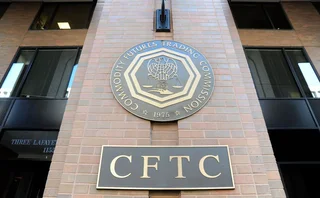
US agrees $700 billion bail-out
President Bush has signed into law the largest US federal intervention into financial markets since the Great Depression, after Congress approved the $700 billion banking bail-out
WASHINGTON, DC – Congress has passed the Treasury’s $700 billion bail-out bill to nationalise the toxic mortgage exposures of US banks. President George W Bush then signed the Emergency Economic Stabilization Act. The bail-out is the largest US financial intervention since the Great Depression – and has been hailed as a milestone towards the resolution of worldwide financial crisis.
Treasury secretary Henry Paulson said in an official statement: “By acting this week, Congress has proven that our nation's leaders are capable of coming together at a time of crisis, even at a critical stage of the political calendar, to do what is necessary to stabilise our financial system and protect the economic security of all Americans.”
The legislation was rejected in its original three-page form a week ago by the House of Representatives, largely due to a Republican rejection of a bill widely seen to be bailing out Wall Street excesses, with few concessions to appeal to working class Americans ahead of White House and Congressional elections.
Paulson said: “This bill contains a broad set of tools that can be deployed to strengthen financial institutions, large and small, that serve businesses and families. Our financial institutions are varied – from large banks headquartered in New York, to regional banks that serve multi-state areas, to community banks and credit unions that are vital to the lives of our citizens and their towns and communities.”
Since the failure of the original proposal, the bill has increased to over 450 pages. The new version, helped by a Senate victory and much behind-the-scenes political brokering, includes a variety of sweeteners and tax breaks to broaden its support. Tax breaks for small businesses and families, and a depositor protection scheme rise from $100,000 to $250,000 have contributed to making the new deal more palatable to average Americans.
Paulson said: “We will move rapidly to implement the new authorities, but we will also move methodically. In the coming days we will work with the Federal Reserve and the Federal Deposit Insurance Corporation to develop strategies that deploy these tools in an expedited and methodical way to maximise effectiveness in strengthening the financial system, so it can continue to play its necessary and vital role supporting the US economy and American jobs. Transparency throughout this process will be important, and I look forward to providing regular updates as we move ahead to implement this strategy.”
Only users who have a paid subscription or are part of a corporate subscription are able to print or copy content.
To access these options, along with all other subscription benefits, please contact info@risk.net or view our subscription options here: http://subscriptions.risk.net/subscribe
You are currently unable to print this content. Please contact info@risk.net to find out more.
You are currently unable to copy this content. Please contact info@risk.net to find out more.
Copyright Infopro Digital Limited. All rights reserved.
As outlined in our terms and conditions, https://www.infopro-digital.com/terms-and-conditions/subscriptions/ (point 2.4), printing is limited to a single copy.
If you would like to purchase additional rights please email info@risk.net
Copyright Infopro Digital Limited. All rights reserved.
You may share this content using our article tools. As outlined in our terms and conditions, https://www.infopro-digital.com/terms-and-conditions/subscriptions/ (clause 2.4), an Authorised User may only make one copy of the materials for their own personal use. You must also comply with the restrictions in clause 2.5.
If you would like to purchase additional rights please email info@risk.net
More on Regulation
US Basel equivalence questioned as EU patience wears thin
MEPs say unfaithful US implementation of Basel III could trigger review of access to EU markets
The Term €STR transition: challenges and market readiness
The progress, challenges and factors shaping the adoption of Term €STR as financial institutions transition from Euribor
CFTC takes red pen to swaps rules, but don’t call it a rollback
Lawyers and ex-regs say agency is fine-tuning and clarifying regulations, not eliminating them
EU edges closer to calming FRTB fund-linked fray
Dealers say temporary solution is a step in the right direction but won’t fully resolve all issues
European Commission changes tune on proposed FRTB multiplier
Banks fear departure from original diversification factor undermines case for permanent relief
Supervisors should be mindful of geopolitical risks, says IMF
Shock events cause sizeable swings in asset pricing, institution’s latest report highlights
Bowman won’t commit to stress-testing the tariff shock
Nominated Fed vice-chair stonewalls calls to run ad hoc scenario similar to 2020 Covid test
Fed’s Bowman to ‘prioritise’ SLR exemption for US Treasuries
Reinstating Covid-era relief is a ‘no brainer’, dealers say, as bond markets reel from tariff chaos







